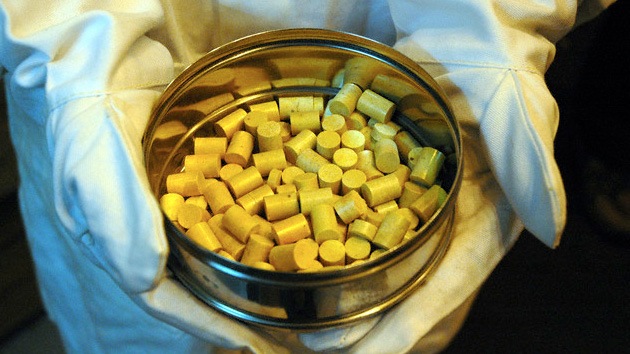
Pakistan has a dedicated and a well-established nuclear program – a large nuclear infrastructure for military purposes and a miniscule one for civilian use. Pakistan’s civil nuclear facilities and installations are under International Atomic Energy Agency (IAEA) “facility specific safeguards,” but like other NWS, its military nuclear complex is outside of any international checks and balances. Pakistan plans to build new nuclear power plants and to expand existing ones to meet the scorching energy requirements in the country. At the official level, Pakistan claims to recognize the significance of careful handling of its nuclear materials and technology right from its production stage to use, and its safe and secure dumping.
With regards to civil nuclear materials control, Pakistan has joined the Convention on the Physical Protection of Nuclear Materials (CPPNM) and the Convention on Nuclear Safety (CNS). Pakistan has also evolved a nuclear technical and scientific support program with the help of the IAEA and its member states. Pakistan has introduced an extensive institutional and legislative response to secure sensitive technologies and nuclear materials to implement UN Resolution 1540. Officially, Pakistan believes that Nuclear Security Summit (NSS) is a great initiative, explaining its participation in the previous two summits. It endorsed these summits’ agendas that stressed the need to secure all vulnerable nuclear materials. However, though Pakistan has acceded to the convention on physical protection, it still is not part of the 2005 amendment or the nuclear terrorism convention.
As far as nuclear weapons safety and security is concerned, Pakistan has taken a number of steps especially in the wake of AQ Khan episode. A report on the 2014 NTI Nuclear Materials Security Index appeared in Pakistan’s most esteemed daily newspaper, Dawn, on 10 January 2014, and may be a reflection of dividends of this work:
“Despite superseding nuclear rivals India, a US study on worldwide nuclear materials security for 2014 said Pakistan is ranked 22nd out of 25 countries with weapons usable nuclear materials worldwide. However, Pakistan has shown the most improvement recently among nine nuclear-armed states through a series of steps to update nuclear security regulations and to implement best practices. The 2014 Nuclear Threat Initiative Nuclear Materials Security Index has ranked Pakistan above India in terms of nuclear safety. India is ranked 23rd out of 25 countries with weapons-usable nuclear materials in the world while China is placed 20th on the index.
The NTI study predicts further improvement in Pakistan’s regulations for protection and threat prevention. In the 2014 NTI Index, the scores of the nine nuclear-armed states remained mostly static, with some states’ scores increasing or decreasing by a single point.
“Pakistan was a notable exception, with its score increasing by three points,” the NTI Index acknowledged in its latest assessment.
“Pakistan, which improved its score by three points compared with 2012, demonstrated the largest improvement of any nuclear-armed state. Pakistan is taking steps to update its nuclear security regulations and to implement nuclear security best practices.”
In particular, the assessment says, new regulations have improved its scores in the On-Site Physical Protection indicator. Pakistan also participated in new bilateral and multilateral assistance, although its score for Voluntary Commitments was already high.
France, the United Kingdom, and the United States lead the nuclear-armed states in scoring.
The 2014 Nuclear Threat Initiative Nuclear Materials Security Index is the second edition of a unique public assessment of nuclear materials security conditions around the world, the organization website said. Developed with the Economist Intelligence Unit (EIU), the NTI Index was created to assess the security of nuclear materials around the world and to encourage governments to take actions and provide assurances about the security of the world’s deadliest materials, it said.”
Why then, are concerns and apprehensions raised by international stake-holders regarding nuclear materials safety and security in Pakistan (despite the fact that it has taken several regulatory measures)? I will try to answer this question in my next post.
***